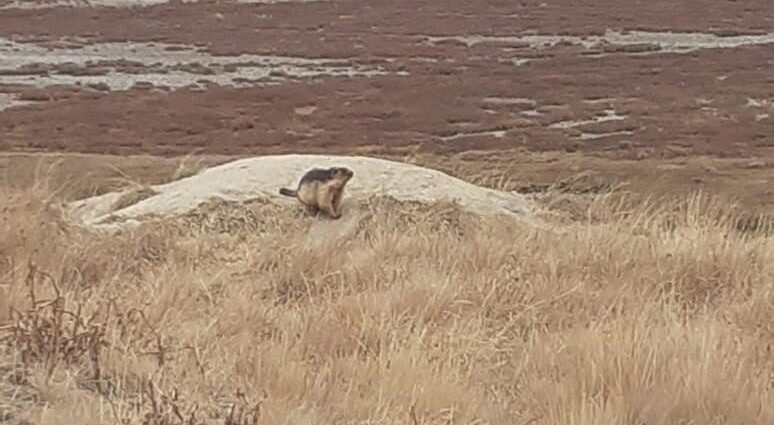Enormous annihilation and change of normal territories, water scattering, deforestation and illicit hunting and exchange have negatively affected Pakistan’s striving natural life throughout the most recent ten years, presenting genuine dangers to a few interesting animal groups, as indicated by specialists and government authorities.
By and by, they said some “adjusting” preservation endeavors by the public authority and untamed life bunches in a joint effort with neighborhood networks have brought about an ascent in the number of inhabitants in a few in any case close terminated species.
“Pakistan’s untamed life has for some time been under pressure because of a few elements, including environment obliteration, water scattering, unlawful hunting and exchange and deforestation ongoing years,” said Mohammad Moazzam Khan, a specialized consultant to World Wide Fund for Nature (WWF) – Pakistan.
Addressing Anadolu Agency on the event of World Wildlife Day falling on March 3, Khan, nonetheless, saw that there has been a “surprising” expansion in the number of inhabitants in a few marine and land species in the country during a similar period.
The South Asian nation has seen an “apparent” decline in the quantity of transitory birds, wild bears, blackbucks, pangolins and Onagher (Indian asp), though there are a few creatures like panthers whose populace has been decreased and expanded all the while in various regions, as indicated by the WWF official.
The quantity of snow panthers in the country’s northern Gilgit-Baltistan district, which borders China, and the normal panther found in northeastern Punjab area and the Islamabad-controlled piece of Jammu and Kashmir has taken off, though the panther populace in southern Sindh and southwestern Balochistan territories has alarmingly declined, he added.
Khan said the number of inhabitants in swines, gavials and crocodiles has additionally fallen by disturbing levels due to “enormous” deforestation” along the Indus River, basically in Sindh.
Mudassir Hasan, the delegate head of untamed life for Punjab, the country’s biggest area, noticed that “debasing ” and “contracting” living spaces because of expanding human action and environmental change have unleashed ruin on the natural life in the territory.
“Environmental change has brought all normal assets including natural life all over the planet under pressure, and Pakistan is no special case, ” Hasan told Anadolu Agency, adding the country’s most extravagant area has kept an enormous decrease in the quantity of transitory ducks lately.
“Our water bodies have become dirtied and are contracting. Space for transitory birds like cranes, flamingoes, gadwalls and canvasbacks is quickly contracting because of contamination and the inaccessibility of food,” he added.
Fencing and deforestation
As indicated by Nawaz Khuhro, a Karachi-put together examiner who routinely composes with respect to the climate and environmental change, the woods cover in Sindh has been diminished to a disturbing degree of under 2%.
The vital variables behind this enormous deforestation, he said, are unlawful infringement by ancestral clan leaders and the portion of woods grounds to lawmakers and property managers for the purpose of cultivating by the public authority.
“Throughout the course of recent many years, more than 200,000 sections of land of timberland land have either been illicitly involved or allocated by the progressive state run administrations to their top picks in Sindh alone,” he said.
Fencing of the Line of Control – a true wilderness that splits the Himalayan Kashmir valley among Pakistan and India – – and the Thar line has contracted the environment for wild pigs, panthers and Onagher, he added.
Indication of recuperation
Khan refered to tremendous unlawful exchange behind the contracting number of pangolins because of appeal for its meat and shells in China.
“There are a few animal categories like vultures and other uncommon cases which have given indications of a recuperation, yet they are as yet jeopardized,” he said.
In any case, the populaces of a few types of Markhor goat, Pakistan’s public creature, the Sindh Ibex (wild goat), Balochistan Urial (wild sheep), Chinkara (deer), snow panther and Nilgai (bluebuck) have shown a vertical direction lately, as opposed to expectations about their conceivable termination, as per Khan.
As far as marine species, he proceeded to say the quantity of visually impaired Indus dolphins, every one of the five types of marine turtles found in the Arabian Sea, and whales has seen critical development.
Sharing a comparable view, Hasan said untamed life specialists “to a degree” have figured out how to safeguard the interesting Chinkara deer in the northeastern Cholistan Desert which boundaries adjoining India.
He said in Punjab’s Potohar range, the Urial goat has been safeguarded with the assistance of nearby networks.
“The nearby networks deal with Urial, and consequently, the public authority burns through 80% of the cash it acquires through issuance of the permit for hunting the four most established goats on them consistently,” he made sense of, adding that the expense is charged in US dollars, with one Urial costing $18,000 to chase.
Yearly, 12 to 16 licenses are given to both neighborhood and unfamiliar trackers.
Last year, a US tracker paid a record $88,000 to cut down a Markhor in the northwestern Chitral mountains which sit on Afghanistan’s line.


